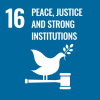Does digitalization reduce corruption? What are the benefits of data-driven digital government innovations to strengthen public integrity and advance the Sustainable Development Goals? While the correlation between digitalization and corruption is well established, there is less actionable evidence on the effects of specific digitalization reforms on different types of corruption and the policy channels through which they operate. This paper unbundles the integrity dividends of digital reforms that the pandemic has accelerated. It analyses the rise of integrity-tech and integrity analytics in the anticorruption space, deployed by data-savvy integrity institutions. It also assesses the broader integrity dividends of government digitalization for cutting redtape, reducing discretion and increasing transparency in government services and social transfers. It argues that digital government can be an effective anticorruption strategy, with subtler yet deeper effects. There nevertheless needs to be greater synergies between digital reforms and anticorruption strategies.
Trust with integrity: Harnessing the integrity dividends of digital government for reducing corruption in developing countries
Working Paper Date:
Category: Economic Analysis and Policy, Sustainable Development
Document Symbol: ST/ESA/2022/DWP/176
Keywords: Harnessing the integrity dividends of digital government for reducing corruption in developing countries, data analytics focusing on public finances, better public policies and for achieving the Sustainable Development Goals
Working Paper File:
wp176_2022.pdf
280.13 KB
 Welcome to the United Nations
Welcome to the United Nations
